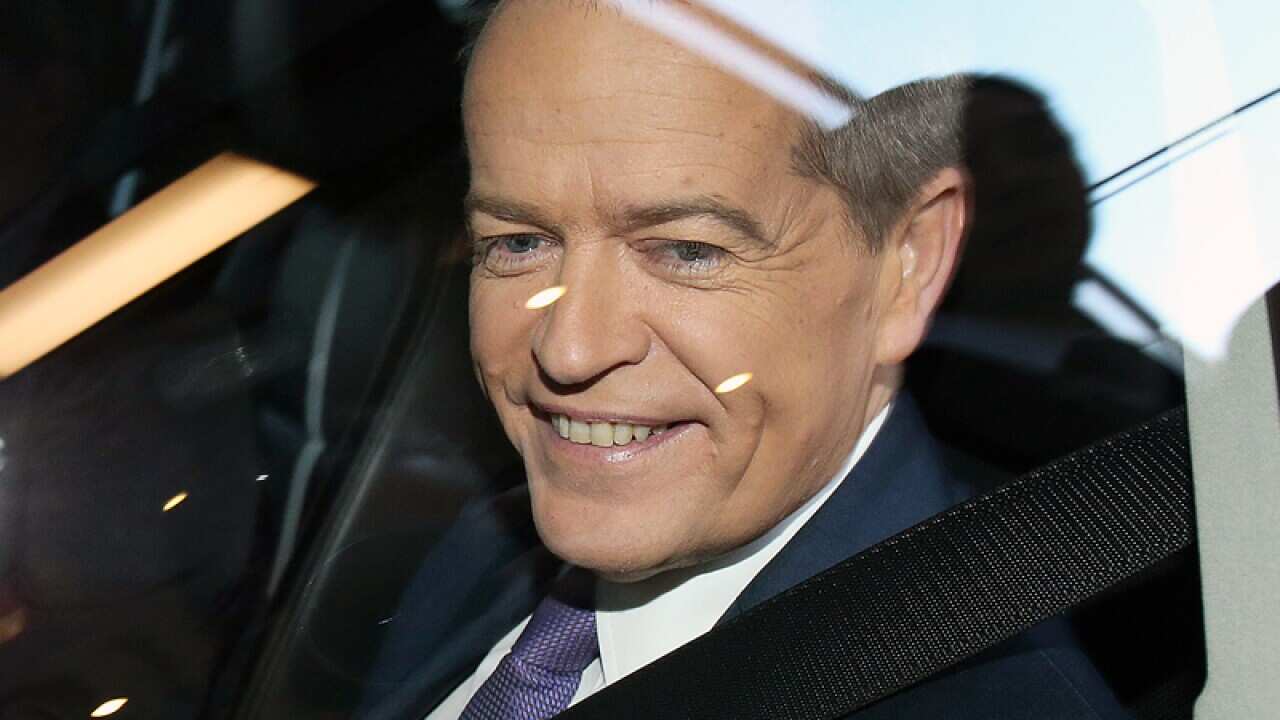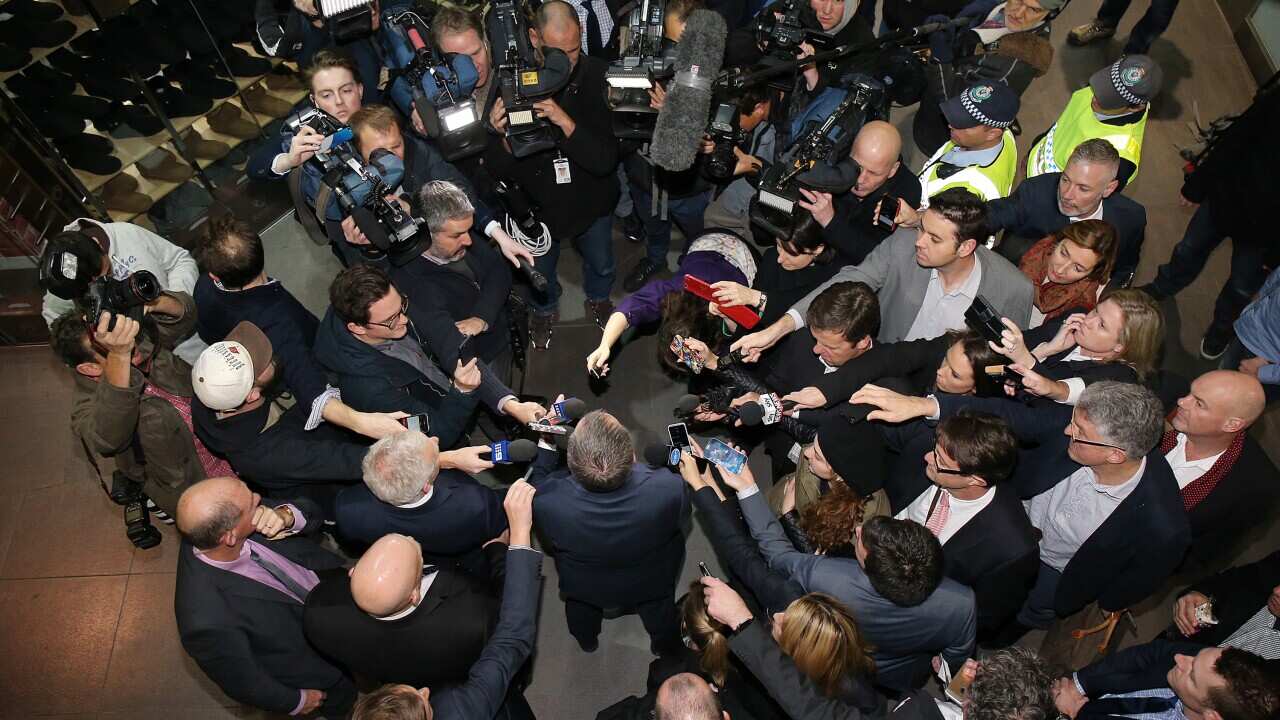The big item of note in the two days of testimony was that he had failed to disclose to the AEC a donation from 2007, and had only just updated the register this week.
This won’t hurt him greatly because both political sides are purposefully hopeless at notifying the AEC of all campaign donations, and it is the one area Tony Abbott has zero desire to discuss.
This farce of a royal commission could perhaps redeem itself a very little if it made a recommendation on the basis of the evidence relating to donations given to Mr Shorten that there be a major overhaul of the campaign declaration laws.
Given the technology available, there is absolutely no reason why political parties are not required to update their declaration continuously – perhaps give a period of three months after a donation for it to be registered for certain large amounts.
Currently the declarations are done once each financial year, and they only are released the following February. We thus had the pathetic situation where only this February did we discover who donated what to political parties for the September 2013 election.
READ MORE

Shorten ends two days of evidence
The parties involved also only need to disclose donations above $10,000 (due to indexation it is actually $12,800 for donations in 2014-15), rather than $1,000 which was the case until the Howard government changed the laws in 2005.
The Rudd Government tried to have the disclosures changed to every six months and to apply for donations over $1,000 (which the ALP adheres to). But the Liberal Party banded with Steve Fielding to block the changes.
And the Liberal Party is in absolutely no rush to revisit them.
When asked about the evidence given by Mr Shorten on Wednesday, Mr Abbott said yesterday of any changes to disclosure laws that it’s “really a matter for the Joint Standing Committee on Electoral Matters”.
“It’s released a couple of reports and they’re reports the Government is considering.”
That of course is a completely disingenuous answer. Yes the joint committee has released a couple of reports, but none of them made any recommendations for changes to disclosure laws. The report on “the conduct of the 2013 election and matters related thereto” noted the continued policy of the ALP and the Greens to reduce the thresholds and have shorter reporting periods.
But the government controlled committee only blathered about any changes needing to “be informed by what is happening at the state and international levels” and that there were some uncertain aspects which meant that any changes “should be carefully considered before any action is taken.”
So no. No action will be taken while the LNP has any say in the matter.
Taking eight years to disclose a donation of around $60,000 is pathetic. But you can go find a long line of equally pathetic examples from the Liberal and National Parties regarding late disclosure.
It’s a shame, because Mr Shorten should be made to feel some heat. Taking eight years to disclose a donation of around $60,000 is pathetic (imaging a citizen trying that on with the ATO and tax returns). But you can go find a long line of equally pathetic examples from the Liberal and National Parties regarding late disclosure.
Mostly these disclosures that were forgotten are fixed up when it become clear that someone is looking into the matter. The same is the case for MPs expenses. In 2013, Mr Abbott “repaid the $1095 cost of travelling to Sophie Mirabella’s 2006 wedding” only because the issue was being looked into by News Corp papers as part of a broader story on shifty expenses.
Convenient to be able to pay something seven years later and receive nothing but a bit of political embarrassment.
It’s why the LNP will choose to focus on conflict of interest aspects of Mr Shorten’s evidence. Is it right that he received a donation to his election campaign from a company while the union of which he was national security was negotiating with it an enterprise bargaining agreement?
It certainly is not a good look – especially because of the failure to declare the donation. Regardless of Mr Shorten’s protestations that the union and the company knew about it – no one else did.
As with Kevin Rudd at the home insulation royal commission and Julia Gillard also at the trade union royal commission, the prime motive of the hearings was far too transparently about making life embarrassing for leaders both former and present of the ALP.
But when you start talking about conflict of interest to bring down someone like Mr Shorten you really need to find evidence that he has lied to the commission or that the perceived conflict caused a change of outcomes. This involves trying to prove that the donations Mr Shorten received led to the AWU workers being worse off. And on that score the Royal Commission failed badly.
And Abbott Government ministers suggesting Mr Shorten let down the workers find themselves attacking a union official for not being militant enough. It’s all a bit odd given that for much of the royal commission’s hearings last year, the focus was on unions being overly militant.
It all gets tough for the government to sustain the attack – especially when the evidence in the commission on Wednesday revolved around the fact that an EBA for AWU workers from 2006 that was rolled over in 2010 (after Shorten had left the union) saw workers worse off because the original one was subject to the conditions under WorkChoices. It’s not really the thing any Abbott minister would like to highlight.
As with Kevin Rudd at the home insulation royal commission and Julia Gillard also at the trade union royal commission, the prime motive of the hearings was far too transparently about making life embarrassing for leaders both former and present of the ALP.
But without any findings of legal wrongdoing, it’s unlikely to cause Mr Shorten too much pain. But no doubt it will still fuel more articles in newspapers and calls by Abbott Government MPs that Mr Shorten has “questions to answer.”
But on the questions about funding disclosure on which all sides have both questions to answer and the ability to make changes? Well those won’t be asked, and certainly not by anyone in the Abbott Government.
Share

